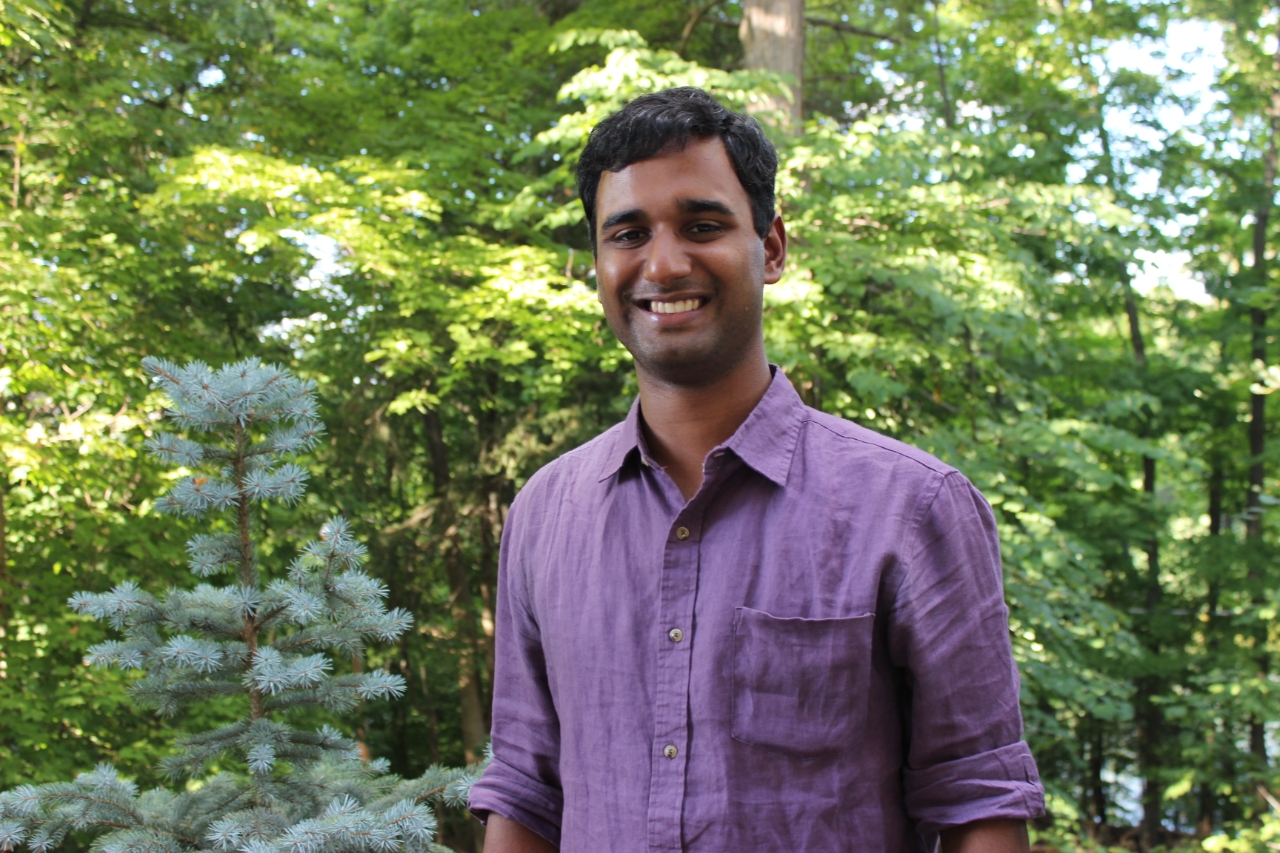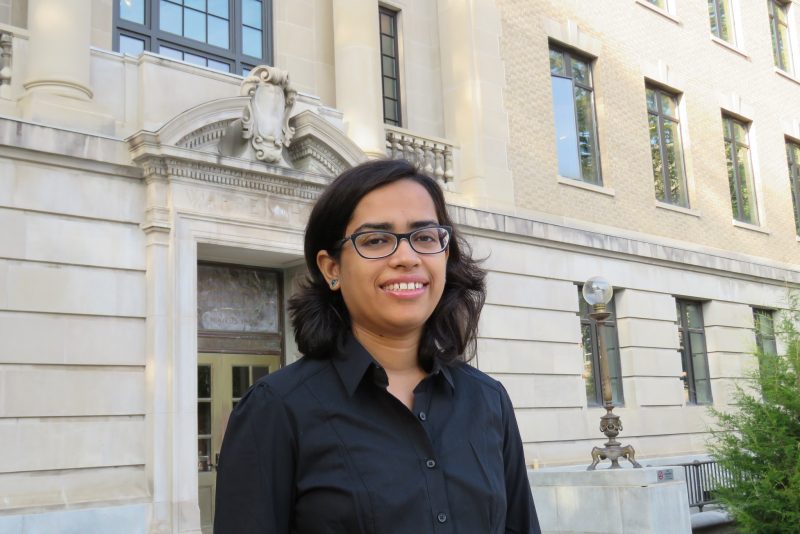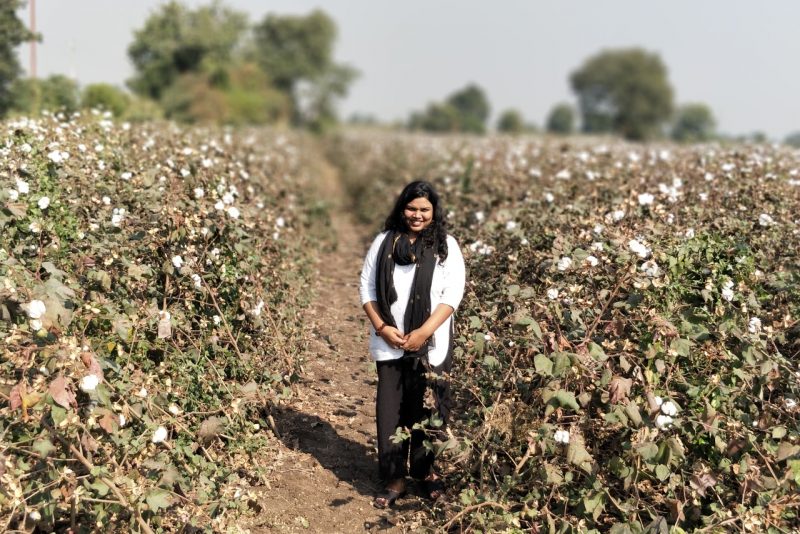TCI Alumnus Expands Research After Graduating

Naveen Sunder, who graduated from Cornell University with his PhD in economics in May 2019, didn’t join the Tata-Cornell Institute for Agriculture and Nutrition (TCI) until midway through his graduate studies, but nearly a year after graduating, he is still contributing to TCI’s research work. Now an assistant professor of economics at Bentley University, Sunder has co-authored several papers in collaboration with other TCI researchers.
Since graduating from Cornell, Sunder has been working with TCI research economist Soumya Gupta and TCI director Prabhu Pingali on a series of papers. One such analysis explores the relative nutritional impacts of on-farm production and market purchases and was published in the Food and Nutrition Bulletin in June. Two additional papers that he partnered on with Gupta and Pingali explore the gender gaps in diet diversity and the role of women’s education in improving the quality of diets in rural India.
“These papers build upon work I did as a TCI scholar,” Sunder said. “Using detailed information on diets of people in four Indian districts, we explore various aspects of diet diversity in rural India and produce evidence-based learnings that can inform future policies.”
“Naveen was among the first group of TCI PhDs to graduate, and a fine example of a dedicated scholar driven not only to make a difference in his field of study, but also to be an agent of change,” TCI assistant director Mathew Abraham said.
Growing up in a middle-class household in Delhi, India, in the 1990s, Sunder said that he saw that poverty was ubiquitous and manifested itself in diverse ways. That experience, combined with his natural inclination towards analytical thinking, led him to pursue the study of economics, with an emphasis on development economics.
While most scholars join TCI from day one of graduate school, Sunder took a different path. As a PhD student in the economics department, he attended some TCI events and later worked as a research assistant with Pingali before becoming a scholar. And while most scholars first conduct field research while with TCI, Sunder had three years of experience doing research in rural India with the Jameel Poverty Action Lab and the Indian School of Business before joining TCI. As a scholar, he worked on a diverse set of topics, including the intergenerational effects of enhanced educational opportunities, the long-term effects of early marriage, and the determinants of diet diversity.
“In TCI, I found a community of like-minded researchers interested in answering similar questions, but with a methodological diversity and rigor that was uncommon across research groups in Cornell,” Sunder said.
After earning his doctorate, Sunder worked as a postdoctoral research associate at the Harvard T.H. Chan School of Public Health. There, he conducted research on a variety of topics with health and behavioral economist Jessica Cohen.
“TCI provides an amazing and unique platform for researchers from disciplines as diverse as economics, plant science, soil sciences, and nutrition to come together and critically discuss various approaches to strengthening food systems in India and across the world,” Sunder said. “This allows young researchers like me to develop a holistic understanding of food systems, and fosters dialogue and cooperation between academics from different domains.”
Among the projects he was involved in was a data-driven field study in Tanzania aimed at testing, treating, and tracking malaria to reduce disease burden, an approach that involves high-frequency testing in high endemic regions, treating positive patients with the appropriate medicines, and tracking outcomes. Other topics he studied included determinants of mental health, the effects of health insurance policy on child mortality, determinants of obesity in low-and middle-income countries, and the impact of early-life economic shocks on long-term health outcomes. Those projects used both primary and secondary data from contexts as varied as China, India, and Zimbabwe.
Sunder was drawn to working at the Chan School because of the opportunity to do interdisciplinary research, which he first got a taste of at TCI.
“TCI provides an amazing and unique platform for researchers from disciplines as diverse as economics, plant science, soil sciences, and nutrition to come together and critically discuss various approaches to strengthening food systems in India and across the world,” Sunder said. “This allows young researchers like me to develop a holistic understanding of food systems, and fosters dialogue and cooperation between academics from different domains.”
The mentorship Sunder received as a TCI scholar was also very influential. Pingali was on his dissertation committee and has co-authored several papers with Sunder. Assistant director Mathew Abraham, who was a postdoctoral associate when Sunder joined TCI, was an important peer influence in his professional life. He credits Jessica Ames, TCI’s former communications and outreach manager, with helping him understand the importance of communication in research and assisting him with building those skills. Former TCI postdoctoral researcher Anaka Aiyar is also a valued friend and co-author.
Sunder said that he also learned a great deal from his fellow scholars at TCI. According to Abraham, Sunder gave as much to his peers as he received.
“Naveen was among the first group of TCI PhDs to graduate, and a fine example of a dedicated scholar driven not only to make a difference in his field of study, but also to be an agent of change,” Abraham said. “He has been an inspiration to his peers, supportive, and selfless with his time—a valuable resource to the cohort.”




